It’s All Politics!
Do we really need stronger leaders... or just a less strong unelected bureaucracy?
In Canada, It’s All Politics
The headlines say the public is “Election weary”—as if the great burden of citizenship begins and ends with dragging oneself to a ballot box once every four years. It's a curious complaint, really, considering the real fatigue isn’t about elections but about the relentless, grinding presence of politics in every corner of life.
Could it be that people aren’t tired of voting but of the endless swirl of government bureaucracy, empty promises, and overreach that rarely delivers meaningful change? It’s hard to have enthusiasm for a system that asks for so much of your cash and patience and so little of your actual input.
Quick poll. Of all the political communication you’ve gotten in the last year what portion was:
1/ Asking for your money and vote
2/ Telling you about all the great things the party was doing and all the terrible things the other parties were doing.
3/ Encouraging your engagement and asking about your ideas.
In my mailbox and email, it was a lot of the former and none of the latter.
“It’s all politics,” my grandmother used to say.
In Canada today, her words seem more prophetic than ever. Everything—ice skating, road crossings, parking, scenic views, bears, even the yumminess of school lunches—feels like a political battleground. Even the past itself is now political, cherry-picked, and mined for the gold of oppression that brings power and cash by the billions.
How did we get here?
The word “politics” once referred to the public work of governance, its meaning rooted in the limited sphere of government in Greek and Roman times. Most of life unfolded in the private realm, with government playing a necessary but restrained role in ensuring the peace at all levels. Over centuries, this balance shifted. Governments began taking credit for every good thing that happened while opposition blamed them for every bad thing. Eventually, everything—good and bad—became tethered to government.
In Nova Scotia, this transformation has deep roots. Reading through the political history of the province from 1710 to 1896, it’s fascinating to see how politics grew here. In the beginning, it was just about communication with England and reflecting imperial authority. Later, it expanded to regulate trade, sustain itself through tariffs, and allocate resources for government wharves and roads - the limits of public infrastructure of the day. Schools, hospitals, and railroads followed. Today, it seems taken for granted that politics must manage every facet of life, from rinks and garbage to buses, convention centers, and even chicken control.
The Government of Nova Scotia - Big Government Big Problems
Thanks for reading The Bee! Subscribe for free to receive new posts.
Politics Without Limits
Politics was once defined by its limits. Now, in our “mature democracy,” those limits have eroded. With the fall of the family, almost everything is seen as something government should fund, manage, and look after, which inevitably means more bureaucracy. As we approach the Federal election, there’s no shortage of talk about the need for leadership—a cure-all for every perceived ailment from healthcare to housing.
Leadership, we are told, will save us. Yet this focus on leadership often obscures the structural issues at play. In his 1944 book Bureaucracy, Ludwig von Mises noted, “To complain of lack of leadership is, in the field of political affairs, the characteristic attitude of all harbingers of dictatorship.” His provocative argument was that a fixation on leadership—on “great” leaders—can be the death knell of democracy, replacing self-governance with rule by decree. This is what thinking people in the United States are worried about these days.
Politics should be to the affairs of the country as the menu is to dinner
Most of life should not be about politics in the same way most of hockey should not be about arguing with the referee. Kenneth Minogue, in his Very Short Introduction to Politics, put it succinctly: “The doctrine that everything is political is an infallible sign... of replacing the rule of law by the management of people (and thoughts).” Yet in Canada and our cities, politics now feels limitless. We live under the assumption that experts must manage every issue of city life, as though democracy were a field of professional specialization. It’s as if only experts can know and act. Never in history has this been farther from the truth with our hyper-educated and literate population with every fact, figure, study, rule, and record right in the palm of their hand.
Democracy isn’t like dentistry. Expertise may be helpful, but ceding our collective decision-making to professionals risks turning citizens into spectators. John Ralston Saul once wrote, “The citizen's job is to be rude—to pierce the comfort of professional intercourse by boorish expressions of doubt.” In other words, democracy requires citizens to challenge, question, and demand better.
It’s the citizen’s job to imagine more and better and be increasingly unsatisfied with the real issues of the day as they see them. The work this requires is in not accepting the narrative - the propaganda as they used to call it in the old days - and to struggle to describe the world as you really see it and experience it, not as the politicians, pundits, bureaucrats, experts, diversity enforcers, and victim headlines tell you to see it.
Leadership Isn’t the Issue
Maybe ‘strong leaders’ are not the answer.
Leadership isn’t Canada’s problem. The Country is brimming with leaders—entrepreneurs, creative thinkers, and success stories abound. You can easily find them in every village and street. They’re the ones filling out forms, applying for grants, and often succeeding in spite of massive big box, pick-a-winner politics systems promoted to ‘help’ but doing nothing of the kind. What we lack are limits: the boundaries, processes, and institutions that allow these leaders to thrive in public service.
Instead, we’ve designed a system that ties the hands of innovators and rewards the most passive perpetually 101-level risk-averse populists, expecting them to tackle every issue imaginable. By undermining elected representatives, robbing them of respect, cutting back on councilors, dismissing those running public office as politicians, and drowning government in bureaucracy, we’ve made it nearly impossible for bold ideas to emerge. The people we call ‘politicians’ may well be that in the worst sense, but we have to remember they were meant to be citizen representatives - taking our best and boldest ideas to the front and instructing those we pay with our taxes to get them done.
Don’t Blame the Wizard: Understanding Power in Modern Democracy
This is a long form post in two parts. The first is about storytelling and why it’s important in local politics, and everything. The second part is about how the story in the movie The Wizard of Oz can help reset our thinking about politics and political leaders.
What Are the Real Questions?
As the fall election looms, we should ask ourselves a few hard questions. Are there any limits we might restore to politics? Can we imagine a nation, province, city where government does less—but does it better? And is leadership really the panacea we’re looking for, or is it just an empty buzzword masking deeper systemic issues?
In the end, we may not need more leaders but fewer roadblocks—and a better understanding of where politics ends and private life begins. That, perhaps, is the true work of governance.


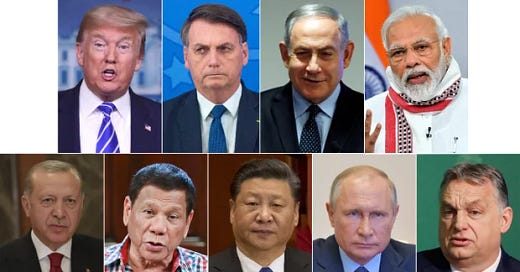



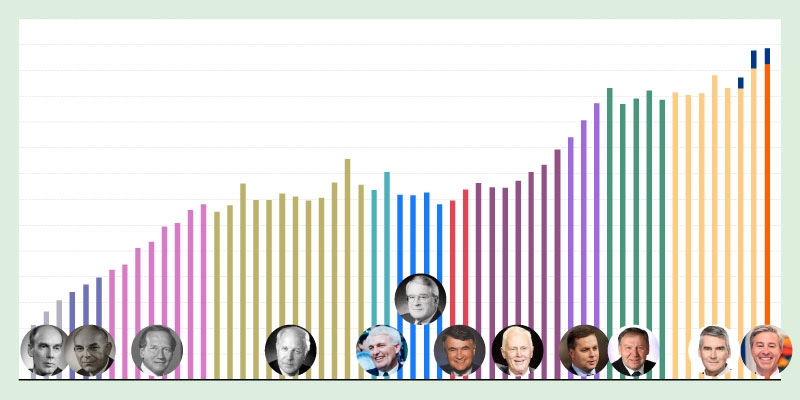
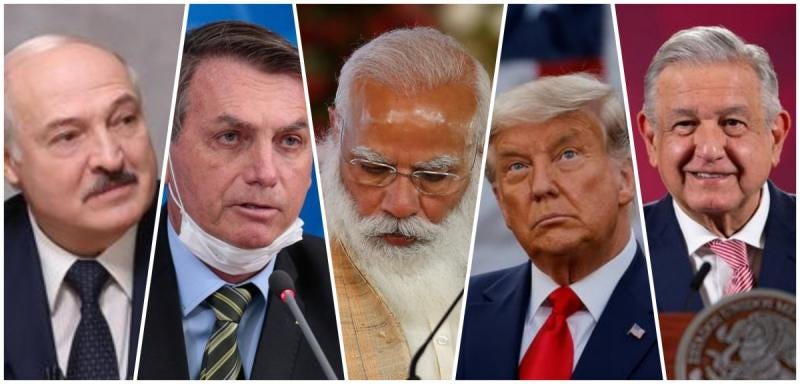
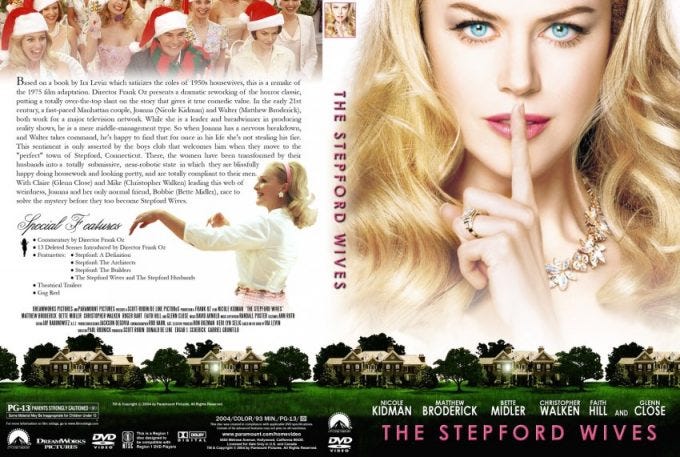
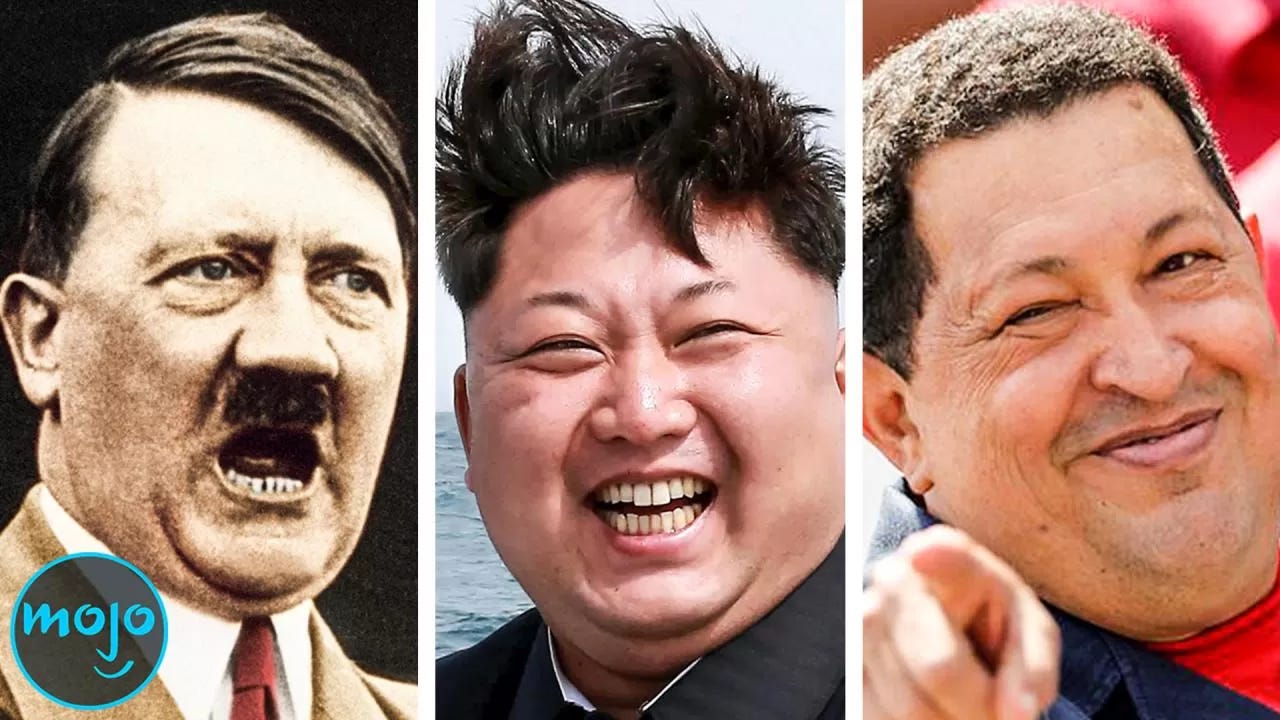

I'm also curious why you haven't tackled this topic yet: https://www.cremieux.xyz/p/trump-should-finish-what-he-started?utm_source=substack&utm_campaign=post_embed&utm_medium=email
I very much like the idea of scrapping the current VAT and income tax in favour of something like DBCFT. It seems like you'd alleviate several issues.
I think you're forgetting, or not acknowledging, that the "strong leader" is a common commodity when wars are in the offing. I fully expect some form of Asian conflict to occur to go along with the wars in Ukraine and the Middle East. Possibly not this year but within about 5 years. It will likely start with China annexing Taiwan but it could expand even to a World War from there (I hope not). I think at least some of politics is actually following this trend, preparing for strong leaders during conflict. If I'm wrong I still think that people are responding to the presentiment of that possibility, the "tension in the air" so to speak.